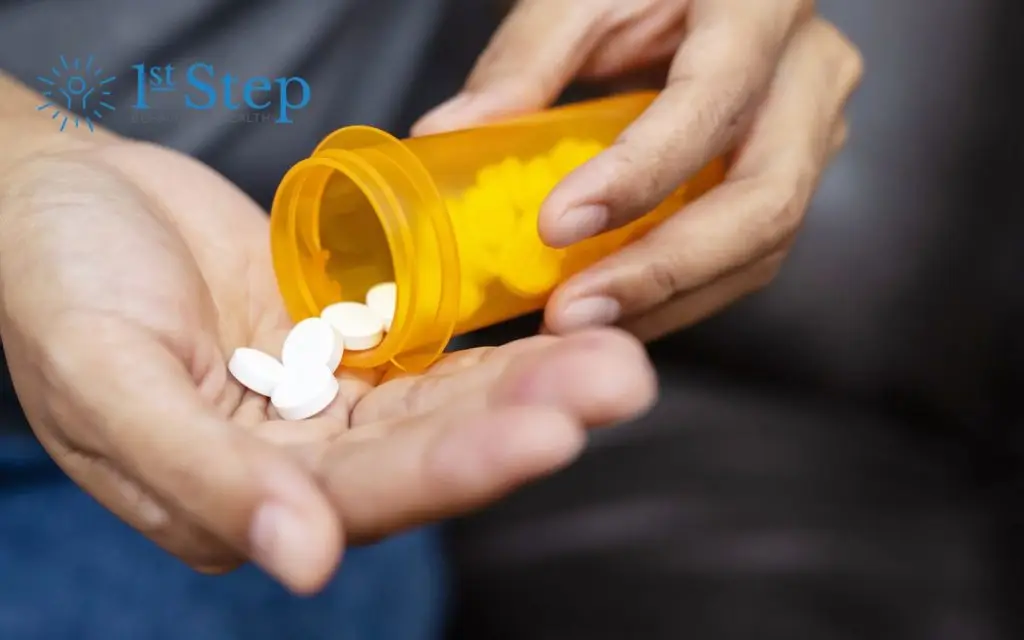Millions of people in the United States take prescription drugs to manage mental health or medical conditions. Some commonly prescribed prescription medications have the potential for abuse and addiction.
Desoxyn is a prescription stimulant drug used to treat attention-deficit hyperactivity disorder (ADHD) and other conditions. People who misuse Desoxyn may quickly develop tolerance and addiction.
This article will explore Desoxyn abuse and addiction. You will learn:
- How Desoxyn works
- The side effects and risks of Desoxyn abuse
- The signs of Desoxyn addiction
- What to expect in Desoxyn addiction treatment
- Where to find comprehensive addiction treatment programs
If you or someone you love struggle with Desoxyn abuse or addiction, you are not alone. Contact the First Step Behavioral Health specialists to learn about our programs or to schedule an intake appointment.
What is Desoxyn?
Desoxyn is an FDA-approved prescription stimulant drug. Doctors may prescribe it to help patients manage ADHD and other conditions, including:
- Obesity
- Hypersomnia (excessive sleeping)
- Narcolepsy
Desoxyn contains methamphetamine hydrochloride. It is available in 5 mg tablets that users take by mouth.
Desoxyn’s active ingredient is methamphetamine. When sold on the street, methamphetamine is an illicit drug. However, doctors may prescribe this drug for use under careful medical supervision.
Desoxyn works by increasing central nervous system (CNS) activity. It increases the brain’s dopamine and norepinephrine levels. These neurotransmitters (brain chemicals) affect the brain’s pleasure and reward systems.
Because of the way it works in the body, Desoxyn has a high risk for abuse and addiction. The Drug Enforcement Administration (DEA) reports Desoxyn as a Schedule II drug, meaning it has a high risk for abuse and addiction. People who abuse prescription Desoxyn or take it recreationally may quickly develop a physical dependence on it.
Desoxyn abuse can lead to short and long-term health complications. It is important to seek addiction treatment as soon as you recognize the symptoms of Desoxyn abuse.
Side Effects and Risks of Desoxyn Abuse
Desoxyn is a potent stimulant drug. It is the legal, medically approved form of methamphetamine. Methamphetamine is a dangerously addictive drug. Research shows about 12 million people report abusing meth at some point.
Like all medications, Desoxyn has the potential to cause unwanted side effects.
Some of the most common side effects of Desoxyn include:
- Excessive weight loss
- Hallucinations
- Elevated heart rate
- Psychosis
- Tremors
- Mood swings
- Kidney damage
- Restlessness
- Muscle twitches
- Elevated blood pressure
- Depression
- Panic attacks
- Muscles aches
Some of Desoxyn’s side effects may be dangerous and require immediate medical intervention. People may also experience euphoria while using Desoxyn, which increases the risk of abuse.
People who abuse Desoxyn for long periods may require intensive drug addiction treatment to overcome this condition. It can be very challenging to stop using Desoxyn, but having medical treatment, supervision, and ongoing support can help people move forward.
Recognizing Desoxyn Addiction
Desoxyn addiction can cause significant changes in the way a person thinks, feels, and behaves. It can cause serious, life-threatening complications in a person’s mental and physical health.
People who abuse Desoxyn may quickly develop tolerance to it. This means they need to use higher doses to get the desired effects. People who abuse Desoxyn may quickly develop tolerance to the drug, meaning that they need more of it to get the same desired effects.
Some signs that a person is living with Desoxyn addiction include:
- Spending a lot of time thinking about Desoxyn, using it, or recovering from using it
- Financial, social, or legal problems related to Desoxyn abuse
- Increased isolation
- Neglecting responsibilities at home, work, or school
- Experiencing withdrawal symptoms if they stop taking Desoxyn
People with Desoxyn addiction require supervision and treatment throughout the detox process. This support can keep people safe and on track in recovery. Then, people must continue treatment to address the complex roots of their substance abuse.
Treating Desoxyn Addiction
Each person has unique needs during addiction treatment. There are several levels of care in addiction treatment, including both inpatient and outpatient programs.
For many people, recovery begins with a medically supervised detox program. Detox treatment programs typically include:
- Medications to manage withdrawal symptoms and ensure safety
- Individual counseling
- Group therapy
- Mental health treatment
- Holistic therapies like mindfulness, nutrition support, and yoga to soothe the mind and body
After completing detox, people must continue in treatment. Comprehensive addiction treatment programs provide therapies that address the underlying roots of substance abuse. Evidence-based therapies used to treat Desoxyn abuse may include:
- Behavioral therapies
- Mental health treatment
- Individual, group, and family therapy
- Relapse prevention education and coping skills
- Medications and medical care
- Aftercare planning
People may also participate in holistic therapies, such as exercise, mindfulness, art therapy, and more.
People often take Desoxyn to manage symptoms of ADHD. People who develop Desoxyn addiction must work with their treatment team to find new ways of treating ADHD. People with ADHD and Desoxyn addiction may require specialized dual-diagnosis treatment programs. These programs address mental health and substance abuse at the same time.
Desoxyn abuse can quickly become life-threatening. It is critical to seek treatment as soon as you recognize the signs of abuse or dependence.
Find Treatment Now
If you or someone you love struggle with Desoxyn abuse or addiction, you are not alone. Contact the intake team at First Step Behavioral Health to learn about our treatment and recovery support programs. Reach out with questions, verify your insurance, or schedule an intake appointment.
References:
- U.S. Food and Drug Administration (FDA): Desoxyn® (methamphetamine hydrochloride tablets, USP)
- National Institute of Health (NIH): Potential Adverse Effects of Amphetamine Treatment on Brain and Behavior: A Review

